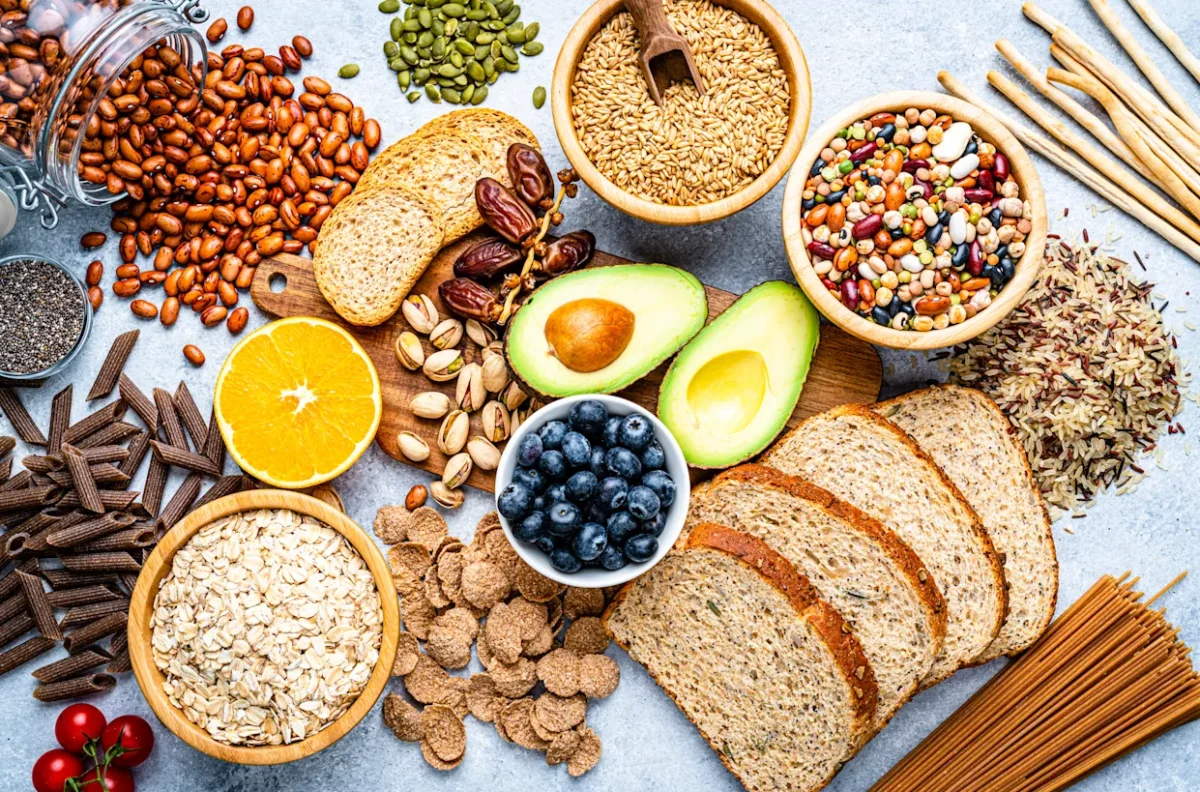10 Signs You’re Not Getting Enough Fiber

Fiber-rich foods include vegetables, fruits and whole grains. Image Credit: Getty Images
Fiber is one of the most overlooked nutrients, yet it plays a critical role in digestion, heart health, and even weight management. While experts recommend 25–38 grams of fiber daily, most people fall short, consuming less than half of that amount. The consequences of fiber deficiency can affect more than just your gut, they can impact your entire body.
Here are 10 signs you may not be getting enough fiber and why it matters for your health.
1. Constant Constipation
One of the clearest signs of low fiber intake is irregular bowel movements. Fiber adds bulk and helps food move smoothly through your digestive tract. Without it, stools become hard, dry, and difficult to pass.
2. Frequent Hunger and Cravings
If you feel hungry soon after meals, your diet may lack fiber. High-fiber foods slow digestion, helping you feel full longer. Without it, cravings, especially for sugary or processed foods, become more common.
3. Unstable Blood Sugar Levels
Fiber helps regulate glucose absorption. Diets low in fiber may cause sharp spikes and crashes in blood sugar, leaving you fatigued, irritable, and at risk of developing type 2 diabetes.
4. Low Energy and Fatigue
Without steady blood sugar control, your energy can plummet throughout the day. High-fiber foods like beans, whole grains, and vegetables provide sustained fuel for the body.
5. Weight Gain or Difficulty Losing Weight
Fiber-rich foods are naturally filling but low in calories. A diet lacking in fiber often leads to overeating, weight gain, or stalled weight loss efforts.
READ ALSO
10 Simple Food Swaps for Weight Management
12 Nutritional Facts You Probably Didn’t Know About Rice
6. High Cholesterol Levels
Soluble fiber binds to cholesterol in the digestive tract and helps flush it out. Too little fiber can raise LDL (“bad” cholesterol), increasing the risk of heart disease.
7. Digestive Issues Like Bloating and Gas
Ironically, while some fiber-rich foods can cause temporary bloating, chronic bloating may actually indicate low fiber intake. A lack of fiber disrupts the balance of gut bacteria.
8. Increased Risk of Hemorrhoids and Diverticulitis
Straining during bowel movements, often caused by low fiber intake, can lead to painful hemorrhoids or long-term intestinal issues like diverticulitis.
9. Skin Problems and Inflammation
Fiber helps remove toxins through healthy digestion. Without it, waste may stay in the system longer, potentially contributing to acne or skin inflammation.
10. Greater Risk of Chronic Disease
Long-term fiber deficiency is linked to higher risks of heart disease, diabetes, obesity, and even certain cancers. A diet rich in fruits, vegetables, whole grains, and legumes offers powerful protection.
Why It Matters Every Day
Health experts recommend incorporating more fruits, vegetables, legumes, nuts, and whole grains into your meals to meet daily fiber needs. Small changes, like swapping white bread for whole grain or snacking on berries instead of chips, can make a big difference over time.
FAQ
How much fiber do I need per day?
The recommended daily intake is about 25 grams for women and 38 grams for men.
What are the symptoms of not getting enough fiber?
Common signs include constipation, frequent hunger, low energy, high cholesterol, weight gain, and poor blood sugar control.
Can low fiber cause bloating?
Yes. A lack of fiber disrupts gut bacteria, which can lead to bloating, gas, and discomfort.
Does it help with weight loss?
Yes. High-fiber foods keep you full longer, reduce overeating, and support healthy digestion, all of which aid weight management.
What foods are highest in fiber?
Beans, lentils, whole grains, oats, berries, apples, pears, nuts, seeds, broccoli, and leafy greens are excellent sources.
Can it improve skin health?
Indirectly, yes. Fiber supports detoxification through digestion, which may reduce inflammation and skin issues like acne.
What diseases are linked to low fiber intake?
Chronic low fiber intake increases risks of heart disease, type 2 diabetes, obesity, and colorectal cancer.
Is it better from food or supplements?
Whole foods are the best source, offering a mix of soluble and insoluble fiber plus vitamins and minerals. Supplements may help but shouldn’t replace a balanced diet.

